Kano community begs for hospital, as residents travel 15 kilometers to access healthcare
In the heart of Karaye Local Government Area, Kano State, lies the Turawa Community, home to over three hundred thousand residents. Despite its significant population, this community grapples with a dire healthcare crisis exacerbated by the inadequacies of its primary healthcare centre.
The plight of Turawa residents came to light through a tragic incident witnessed by a local, underscoring the urgent need for improved healthcare infrastructure.
SolaceBase correspondent Aliyu Inuwa Mansur visited and investigated the severe hardships faced by the residents due to inadequate healthcare facilities which had led to preventable deaths within the community.
……………………………………………………………………………………………………………………………………………
With a population exceeding three hundred thousand, the Turawa community depends on a single primary healthcare Center.
The healthcare centre, the only medical facility serving the community, operates from 8:00 AM to 2:00 PM daily, leaving residents vulnerable during emergencies, particularly at night and during the weekends
The centre’s deficiencies in medical equipment and staffing have resulted in preventable deaths and increased hardship for patients.

Residents have to travel to seek medical attention in Karaye town, approximately fifteen kilometres away. The road, riddled with potholes, poses significant risks to patients’ well-being, exacerbating their suffering during transit.
A visit to Turawa’s primary healthcare centre by SolaceBase revealed appalling conditions, with dilapidated facilities and a severe lack of essential amenities. The reluctance of the hospital administrator to engage reflects broader challenges in governance and accountability within the healthcare system.
Testimonies from community members paint a grim picture of the challenges they face. Pregnant women, in particular, express fear and uncertainty due to the lack of access to timely medical care. Many recount harrowing experiences of enduring labour pains on perilous journeys to distant hospitals, highlighting the urgent need for a 24-hour operational facility in Turawa.
Read Also: Investigation: How govt neglect Kano Community amidst spread of hepatitis
“I witnessed a tragic event as my neighbour passed away in my car while we were en route to the Karaye Emirate Specialist Hospital. If our local hospital had been operational around the clock, she might have survived. The woman was pregnant, and in a desperate attempt to save her, we rushed to the hospital only to find it closed.
“The Karaye Emirate Specialist Hospital, located about 15 kilometres from our village, was our only alternative. Unfortunately, the woman was already weakened by the frantic search for assistance within the village. Ultimately, we decided to make the journey to the Karaye Emirate Specialist Hospital, but the road was riddled with potholes,” said a member of the community who refused to give her name.
Libabatu Isah, a resident of the Turawa community, shared her harrowing experience with SolaceBase.
“I was in labour during the night, and my husband frantically searched for a taxi to take me to the Karaye Emirate Specialist Hospital. It took him hours to find one. He even considered using commercial motorbike riders, which are commonly used in the village to transport patients, including pregnant women in labour, due to the affordability compared to chartering a taxi. When he finally found a taxi, I was in excruciating pain, and my mother and neighbours feared for my life.”
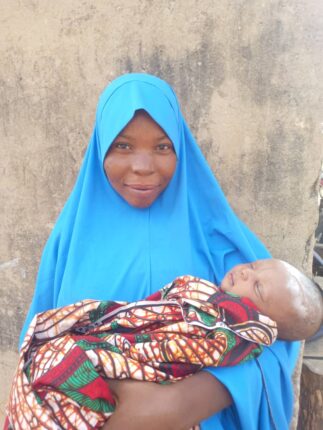
Libabatu Isah, a resident of the Turawa community
“Can you imagine the kind of pain I endured? I wouldn’t wish it on my worst enemy. If there had been a 24-hour operational hospital nearby, none of this would have happened to me.”
“The journey from our village to the Karaye Emirate Specialist Hospital is perilous, and patients may even die on the road before reaching their destination.”
“This incident occurred about two months ago. Look at the baby I gave birth to, can you imagine how I would feel if I had lost my baby or my own life?”
Daiba Muntari, a woman in her ninth month of pregnancy, expressed her distress over the challenges she faces each time she needs to undergo a scan or see a doctor.
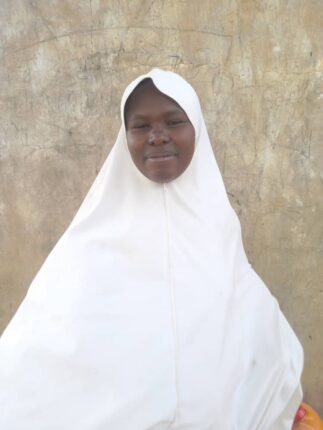
Daiba Muntari, a woman in her ninth month of pregnancy.
“I am in the final stages of pregnancy and could go into labour at any moment. The constant uncertainty is terrifying because if I go into labour outside the hospital’s operating hours, I fear it could be fatal.
“Just yesterday, I endured a great deal of suffering on my way to the Karaye Emirate Specialist Hospital, which is about 15 kilometres from our village. I had to resort to a commercial motorbike due to the lack of transportation options, and the poor condition of the road has left me in pain ever since.”
“If only our hospital operated as it should, I wouldn’t find myself in this predicament. A mere ten-minute journey would take me to the Turawa Primary Healthcare Center, but unfortunately, it does not operate as needed.”
Read Also: Climate Change: Kano records first rainfall in 2024
The lack of a 24-hour operational hospital in the community has led to tragic losses of life.
Usaini Abdullahi, the village head of Zare and a taxi driver, recounted two distressing incidents.
“The absence of a round-the-clock hospital is endangering our lives. It’s disheartening that a community of over three hundred thousand people relies on a single primary healthcare centre that doesn’t operate 24 hours.
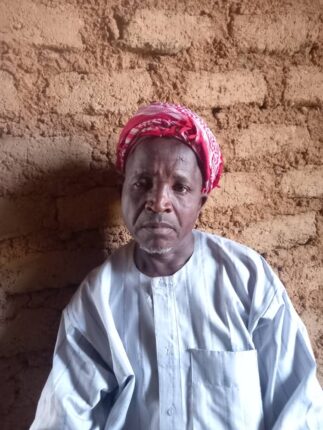
Usaini Abdullahi, the village head of Zare and a taxi driver
“I vividly recall an incident where a pregnant woman died in my car. We hurried to the hospital, only to find it closed, and the Karaye Emirate Specialist Hospital was about 15 kilometers away. The road conditions were terrible, full of potholes. As we drove to the town’s general hospital, the woman was in agony, crying out for help until she passed away.
We had no choice but to return home with her body. If there had been a 24-hour hospital available, she might have received first aid at the very least.
“This wasn’t an isolated case. Another time, I was transporting a pregnant woman at midnight when she gave birth on the road. I rushed to nearby houses for assistance, and the local women came to help and provide cover. These experiences are harrowing. We urgently need the government’s assistance.”
Residents have begun to lose faith in the local hospital due to insufficient staffing and its early closure at 2:00 PM daily
Consequently, many have ceased seeking care there, opting instead for distant town hospitals. Rabilu Dan’Azumi Baba, also known as Coach, shared his observations, noting that the majority of villagers now prefer to seek medical attention elsewhere rather than at the Turawa primary healthcare center.
“The majority of our community no longer visits the hospital. The lack of medical equipment and adequate staff leaves us with little reason to go,” he explained. “From what I’ve seen, the hospital staff seldom exceeds two, and at times, there’s only one woman present.”
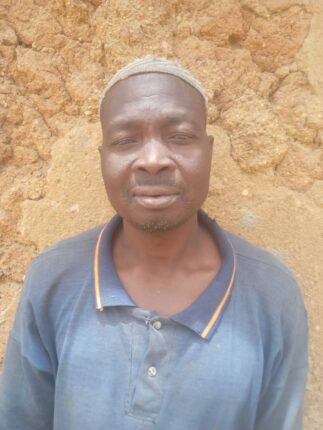
Rabilu Dan’Azumi Baba, also known as Coach
“That’s why we choose to travel to town, enduring the long journey and potholes, to seek proper medical care, even if it means using commercial motorbike riders,” he added.
Ummi Yusuf, another resident of the Turawa community, shared her reasons for no longer using the local hospital. She pointed out that even if she were to visit, the lack of staff and medical equipment would prevent her from receiving proper healthcare.
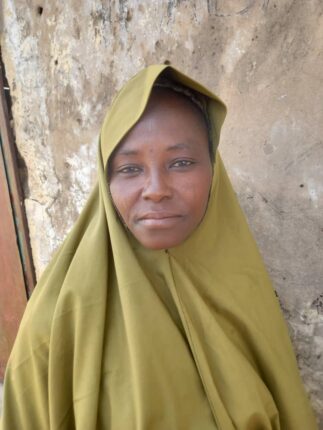
Ummi Yusuf, another resident of the Turawa community
She said, “Even if you go to the hospital, there’s no medical staff available, and for us women, our main concern is childbirth. When you go there to deliver, there’s no midwife to assist you. There is one midwife who visits once a week to perform scans, but who will care for expectant mothers on the days she doesn’t come? We should have at least one woman available every day so that we know someone is there for us.
“When the midwife is present, she does her best, but on the days she’s absent, we are left to fend for ourselves. We don’t have enough medical workers to serve a community like ours, with a population of over three hundred thousand. How can so few staff members attend to all of us? The hospital lacks water and cleaners.
If you were to enter some of the wards, you wouldn’t want to stay for even three minutes, let alone the labour room. I fear someone could contract diseases due to the unclean conditions.”
Community leaders have voiced their concerns regarding the healthcare challenges faced by their locality.
Community leaders, including Nazifi Ibrahim and Alhaji Sulaiman Ibrahim, echo the urgent plea for government intervention to address the healthcare crisis plaguing Turawa while emphasizing the need for additional staff, medical equipment, and round-the-clock services to prevent further loss of life and alleviate the burden on residents.
Nazifi Ibrahim, the chairman of the Turawa Ward Development Committee, expressed distress over the absence of a 24-hour operational hospital, adequate medical equipment, and sufficient staffing in the local hospital.
“My name is Nazifi Ibrahim, and as the chairman of the ward development committee, I must highlight the plight of our community. The Turawa Primary Healthcare Centre serves approximately eight communities. Imagine the sheer number of people reliant on this facility, and yet, we lack a fully operational hospital.
This deficiency poses a severe threat to our lives. In emergencies during the night, the absence of a 24-hour operational hospital could result in the loss of life. Currently, we resort to using chemist shops or transporting our patients to Karaye town by motorcycle taxis, which is extremely perilous.
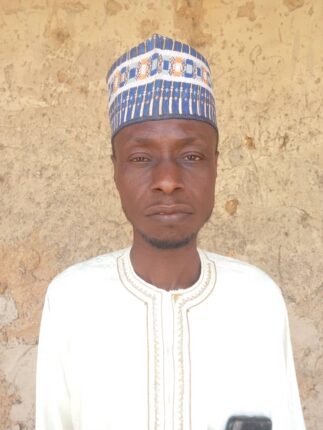
Nazifi Ibrahim, the chairman of the Turawa Ward Development Committee
“The hospital’s building structure is sound; however, we are critically understaffed. Many of those who are working do so on a voluntary basis, and some lack the necessary experience to care for patients adequately. We urgently call on the government to provide additional staff and ensure the hospital’s functionality around the clock. As it stands, the hospital staff conclude their duties at 2:00 PM, leaving us without support thereafter.
Our hospital’s structure is expansive and should be well-equipped with facilities and a full complement of staff. It is disheartening to see such a large hospital lacking in resources. During nighttime emergencies, the absence of staff and facilities is acutely felt.
Our community endures significant hardship when traveling from our village to the town, and sometimes, before we can even reach there, the patient’s condition deteriorates severely due to the poor condition of the roads. If we had adequate staff and medical equipment, such tragedies could be averted.”
Alhaji Sulaiman Ibrahim, the district head (Dakaci) of Turawa, oversees approximately eight communities. He expressed his concerns to this reporter, stating, “My name is Alhaji Sulaiman Ibrahim. Indeed, what the residents are saying is true. We urgently need additional staff in our hospital. We wish for the hospital to operate around the clock because when it closes, we are in dire straits.
The eight communities under my jurisdiction rely on this facility, which is currently unable to meet our needs. If the government cannot construct a new hospital for us, we at least need improvements to our existing one, as my people are suffering greatly.
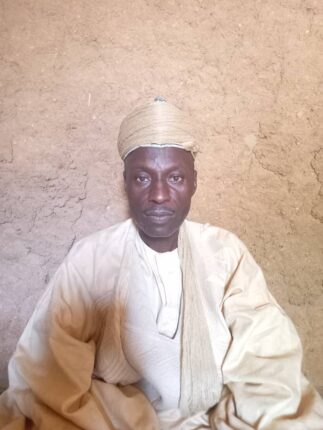
Alhaji Sulaiman Ibrahim, the district head (Dakaci) of Turawa
“All eight communities, with a combined population of over three hundred thousand, depend on this hospital. Unfortunately, it lacks sufficient staff and does not operate 24 hours a day, which is deeply distressing. My people must resort to commercial bikes or taxis to reach Karaye, but not everyone can afford to charter transportation. We need the government to come to this place and assist us.
“For instance, if this hospital were fully functional and your friend or relative were admitted, you wouldn’t need to spend money on transport due to the proximity. You could visit and even offer financial support. However, travelling to Karaye Hospital entails significant transport costs due to the distance, often leaving little to no funds to support the patient. If the hospital were closer, the money saved on transport could significantly aid the patient.
Read Also: PHOTOS: Abandoned community PHC in Jigawa wears new look after SOLACEBASE report
“Pregnant women face even graver challenges. Sometimes, before reaching Karaye, they have already exhausted their energy, leading to stillbirths. We have witnessed many such cases due to prolonged labour. If the hospital were fully operational, none of this would happen.”
The community has turned to traditional midwifery to support their pregnant women
Adama Yahaya, a traditional midwife in the Turawa community, is an elderly woman who assists women in labour. She explained her motivation for her work.
“I have dedicated two decades to this service because I realized that without it, our women would face great danger. It’s tragic to see our hospital understaffed and not operating 24 hours. Often, unfortunate incidents occur after the hospital closes at 2:00 PM daily. I couldn’t just stand by and watch my children and neighbours die during childbirth. Based on my experience, I assist people in this community to deliver successfully.”
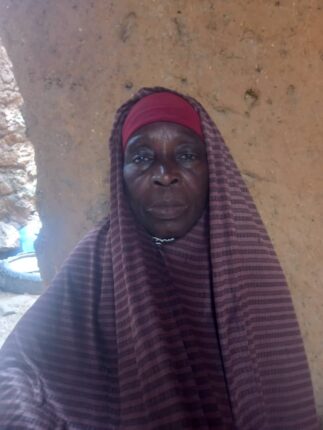
Adama Yahaya, a traditional midwife in the Turawa community.
“Only when a birth is problematic do I have no choice but to take the mother to Karaye Emirate Specialist Hospital, which is quite far from our village. Sometimes, even when we reach Karaye, they refuse to admit our patients, forcing us to travel to Garzo local government, which is even farther. The patient might not survive the journey.
Read Also: JUST IN: Military releases killed terrorist commanders’ names
“That’s why I use my experience to care for women in labor. It would be far better if they could receive doctors’ attention. I hope that one day before I take my last breath, our hospital will operate 24 hours and have enough staff to meet our needs. If I were to recount all the tragedies that have befallen this community due to the lack of a fully functional hospital, you would weep for us. So much has happened. The necessity of my midwifery work is born out of a need to help people, not out of desire.”
The hospital is severely lacking in medical equipment, with no water supply, beds in the wards and labor rooms, and broken windows throughout the facility
During our visit to the Turawa primary healthcare centre, SolaceBase observed the dire state of the hospital. Both the female and male wards were devoid of beds, the windows were shattered, the ceiling was damaged, and the entire area was covered in dust. The conditions were so poor that it would be unreasonable for anyone to remain in the wards for even ten minutes. The facility also lacked water supply, drip stands, and functional toilets.
Upon entering the delivery room, the absence of beds and electricity connectivity was evident. Cobwebs covered the walls, and dust had accumulated to such an extent that it seemed as if no deliveries had taken place there. The in-room toilet was riddled with rat holes, and cockroaches roamed freely.
The Facility’s Head Remains Silent Amidst Turawa’s Healthcare Crisis
As I moved from one ward to another, the head of the facility intercepted me, explaining that the government had long prohibited the inspection of health centres in the state without prior approval from the Ministry of Health.
I attempted to reassure him that my intentions were harmless to both him and the hospital, but he became confrontational, asserting that I had no right to access certain areas within the hospital. Despite my efforts to defuse the situation, he remained adamant.
Naziri Isiyaku Haruna, the hospital administrator, eventually revealed his hesitance to communicate: “I have chosen to remain silent because there was a previous incident where journalists reported on a Hepatitis B outbreak in Karaye. The report drew significant attention from our management, who addressed the issue with utmost seriousness. I prefer not to partake in any discussions or actions that could potentially endanger my employment. I kindly request to be left alone,” he explained.
The dire healthcare situation in Turawa Community underscores a pressing need for immediate intervention. The tragic loss of lives, the harrowing experiences of pregnant women, and the community’s loss of faith in its local healthcare facility all point to a healthcare crisis that demands urgent attention.
Beyond the physical infrastructure and medical resources, there’s also a need for improved governance, transparency, and accountability within the healthcare system. The reluctance of hospital administrators to engage and the challenges faced by traditional midwives further emphasize the need for systemic reforms to ensure that every individual, regardless of their location or circumstances, has access to quality healthcare when they need it most.
In the face of adversity, the resilience and determination of the Turawa community shine through. From the traditional midwife offering her services to the village head and residents advocating for change, there’s a collective effort to confront the healthcare crisis head-on. It’s a testament to the strength of community spirit and the unwavering commitment to securing a better future for all.
SolaceBase contacted the Kano State Primary Health Care Management Board (SPHCMB) to inquire whether they were aware of the hospital’s condition and the community’s health challenges in Turawa community.
Makkatu Aisha, the Director of Medical Services at SPHCMB, stated that the hospital is not designed to operate 24 hours and typically has no more than two staff members on duty.
“The hospital is a basic health centre and is not designed to operate around the clock. What the residents of this community should do is utilize the ward development committee to approach the local government chairman and submit a letter to the governor of Kano State requesting an upgrade of the hospital from its current level,” said Aisha.
She further explained that “Some hospitals, like the one in question, are not equipped to facilitate childbirth. They are intended to treat common ailments such as fever and malaria, administer vaccinations, provide care for sick children, and offer first aid to expectant mothers. Cases that exceed the hospital’s capacity are referred to the general hospital.
Read Also: Diphtheria: A look into disease breeding grounds in the wake of diphtheria outbreak in Kano
“The community has politicians who are aware of these issues. They should take the matter to the state government, which will then consider if the hospital’s square meterage is sufficient for an upgrade,” Aisha advised.
“We are aware of the locations of these hospitals; we have a tracking system. Sometimes, the staff count does not exceed two individuals. We invite unemployed health course graduates to volunteer and assist their community based on their capabilities,” she added.
Aisha urged the ward development committee of the community to determine the hospital’s level, whether it is a health facility or a health post, and to draft a letter signed by the local government chairman, community leaders, politicians, and stakeholders.
“This letter should be sent to the state government, highlighting the community’s challenges and the need for an upgrade to meet their needs, as the residents are suffering significantly.”
“The issue of understaffing is not unique to Turawa primary healthcare; it is a widespread problem in Kano. The current administration inherited many challenges, and when people retire, they are not replaced,” Aisha remarked.
“I will personally visit the community to assess the situation, and we will advise the government on how to address issues like this,” she promised.
This report is produced with support from Civic Media Lab (CML)

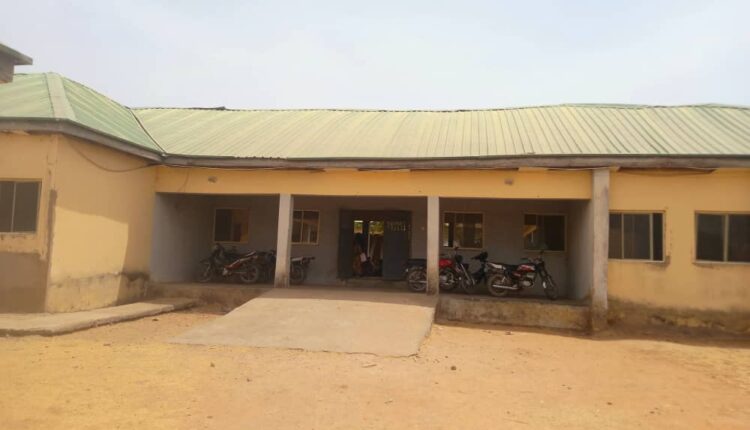

Comments are closed.